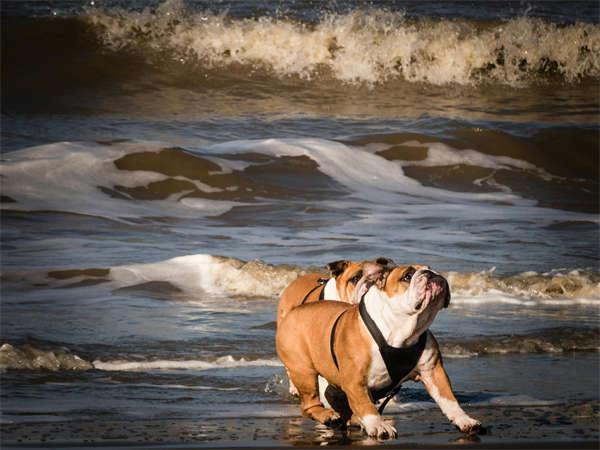Holidays and festivities often come with joy and excitement But for our four-legged friends, the change of routi

Holidays and festivities often come with joy and excitement. But for our four-legged friends, the change of routine could mean stress and sometimes, health troubles. A sudden illness or an accident can leave you in a dilemma, especially when your usual veterinarian’s office is closed. As an experienced veterinarian, I'm going to shed some light on how to handle pet health emergencies during holidays, equipping you with insights on recognizing emergencies, making necessary preparations, and taking preventative measures.
1. Recognizing Pet Health Emergencies
The question that often boggles pet owners is: is this a real emergency or is it something that can wait until the vet's office reopens? It's important to recognize the difference between a non-threatening situation and a true health emergency that might warrant immediate veterinary attention.
1.1 Reach Out to the Vet's Office
Give your vet's office a call first. If they are closed, they might have an answering service or voice recording that provides instructions for emergencies. The advice from these services can help you determine whether your pet needs immediate attention or if it’s a situation that can wait.
1.2 Evaluate the Situation
Stay calm and assess the situation objectively. Keep an eye out for any unusual symptoms or behaviors in your pet. Your observations are valuable in obtaining the right advice from the vet or emergency services.
1.3 Nine Signs of an Emergency
There are certain health issues that immediately warrant a vet's attention. For example, open wounds, abnormal gum color, toxin exposure, abnormal body temperature, excessive whimpering, persistent coughing, a distended abdomen, difficulty in breathing, or seizures. If your pet shows any of these signs, seek immediate veterinary help.
2. Preparing for a Vet Visit on Holiday

If you've determined that you're dealing with a pet emergency, the next step is knowing how to prepare for a vet visit. Emergency situations require you to act swiftly but calmly, and following these steps can help ensure that you are providing the best care for your pet during this stressful time.
2.1 Preparing Your Visit Details
If you need to visit an emergency clinic, have handy the necessary details like the location, contact numbers and any specialty the clinic might have. These details will be crucial in the event of a severe condition that requires specialized care or surgery.
2.2 Safely Transporting Your Pet
Take precautions when transporting a frightened or hurt pet. They may behave unpredictably under stress, so consider using a dog harness, cat carrier, or a gentle wrap for smaller pets.
2.3 Bring Necessary Documents
Don't forget to carry any important health documents like your pet's previous medical history, vaccine records, or information regarding any ongoing medications. Having these details handy can aid the emergency vet in understanding your pet's health background.
3. Preventing Holiday Emergencies
The ideal situation is to prevent emergencies from occurring in the first place. While we cannot anticipate every possible problem, following certain precautionary measures can certainly minimize the risk of health emergencies during the holiday season.
3.1 Keeping the Routine
Try to keep your pet's schedule - including feeding and sleep times - as normal as possible. Also, avoid feeding them any part of your festive feast that their systems are not used to.
3.2 Pet-Proof Your Home
Make sure your home is pet-friendly during the holidays. Be mindful about ornamental plants, decorations, and foods like chocolate that are accessible to your pet and might be harmful to them.
3.3 Check in Regularly
No matter how busy the festivities get, make sure to check on your pet regularly. This helps in early detection of any issues and prevents them from escalating into something serious.
If you observe any irregular behavior in your pet after consuming a certain food or exposing them to a new environment, it's recommended to seek immediate veterinary help. This guide aims to reassures pet owners and provides them with concise advice on how to manage pet health emergencies during holidays. Your pet's health and happiness are always the utmost priority!










